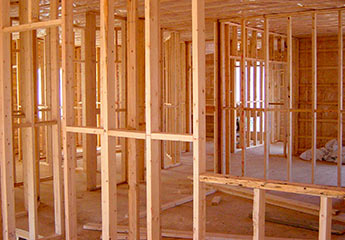The construction industry is trying to reduce its CO2 footprint and is therefore showing increased interest in sustainable materials. In this regard, timber-based buildings have become more popular as they have a lower climate footprint, are easy to build, cost-effective and visually appealing. However, there are restrictions on the use of combustible materials in building constructions due to historical fires and design methods for these constructions are still lacking. This creates limitations for the use of timber surfaces in building design. This project aims to develop assessment methods to predict and study how fire behaves in rooms with exposed timber surfaces.
Using bio-based materials in buildings can affect the way fire spreads compared to traditional materials such as steel and concrete. Current pre-accepted guidelines allow a maximum of 20% of room surfaces in a timber building to be exposed, which is a limiting factor for architects, clients, and contractors alike. A possible solution is to use fire safety engineering methods to document the safety of buildings designed outside of these pre-accepted guidelines, which will allow for the creation of more aesthetically pleasing and innovative timber buildings. However, there are no validated engineering methods to predict how combustible surfaces in a space will affect fire behavior and associated risks. This creates a lack of knowledge which prevents the realization of more sustainable timber buildings with higher levels of exposed timber.
The aim of this project is to develop assessment methods that are based on science, allowing to predict and document how timber surfaces affect the development of fires. These methods will be disseminated through courses, webinars, and workshops, in addition to upskilling 50 to 100 fire engineers in Denmark. Furthermore, knowledge will be shared through the publication of scientific articles and presentations at conferences.


